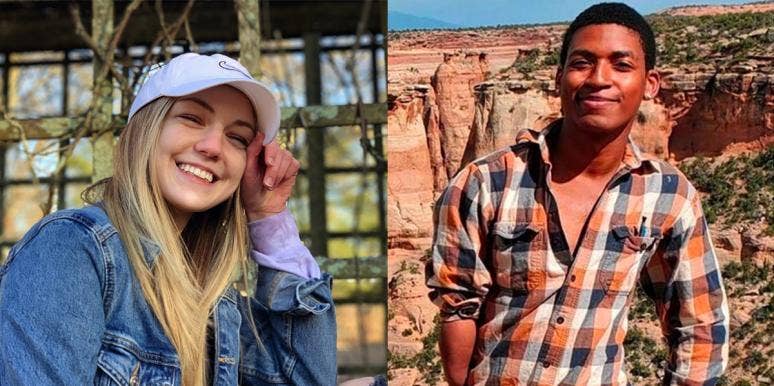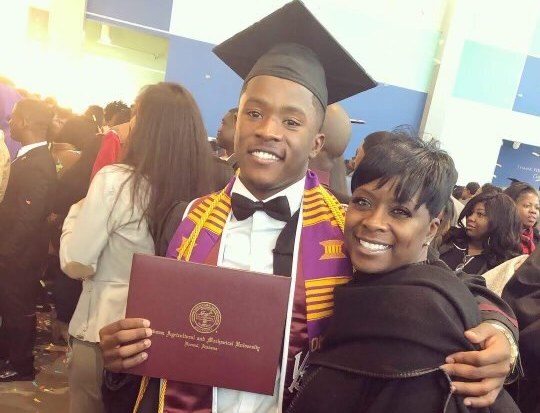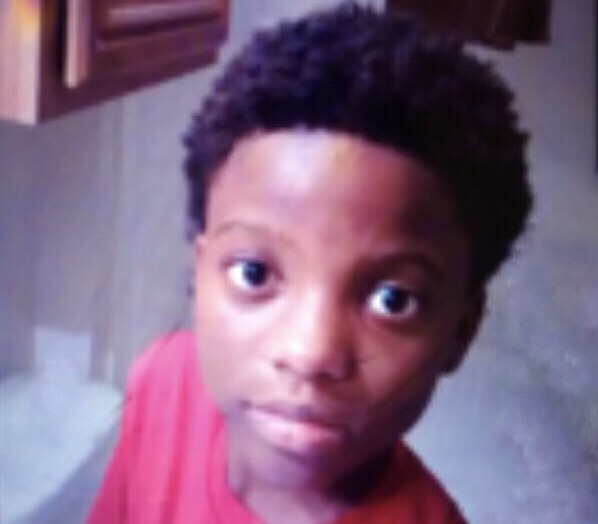Black Fams.Have to Hire P/I to Find Son Because Cops Were of Not Much Help

When private investigator Jeff McGrath began looking into the disappearance of Daniel Robinson, he quickly came to the conclusion that something was suspicious. But he said local police, who initially ruled out foul play, didn’t take him seriously.
Robinson, a 24-year-old geologist who is Black, was last seen on June 23 leaving a work site near Buckeye, Arizona. About a month later, on July 19, a cattle rancher found his Jeep in a ravine a few miles from the job site. That’s when Daniel’s father, David Robinson, hired McGrath, who specializes in reconstructing car accident scenes. After surveying the evidence, McGrath came to the conclusion that the Jeep had crashed in a different spot than where it was found.
“Immediately we know we have a suspicious missing persons case, so we're trying to convey that to the police,” McGrath said. “They wouldn’t listen to me.”
Now that’s changed, in light of the death of YouTuber Gabby Petito, 22, whose remains were found at Wyoming’s Grand Teton National Park on Sunday. The FBI have ruled her death a homicide, and a massive manhunt is underway to find Petito’s boyfriend, Brian Laundrie, a person of interest in the case.
The story has garnered international media attention, but it’s also thrust cases like Robinson’s into the spotlight, with many noting that missing persons cases involving Black and Indigenous people don’t receive such intense coverage—if any at all. Some families, including Robinson’s, turn to private investigators and lawyers to help them find answers when they feel the police response is lagging.
Last week, Buckeye police released an update about Robinson’s disappearance, saying that police used ATVs, cadaver dogs, a drone, and a helicopter to search 70 square miles for him; they also asked for tips. McGrath said police are now consulting with an accident expert, but they’ve lost three months of valuable time.
Police are “trying to do what’s right at this point, but I feel that it’s a little too late,” Robinson’s brother Roger Cawley-Robinson said in an interview with CNN. “My sister that lives in Arizona and my father did a lot in the beginning, trying to push and get things moving, pleading with the police, you know, begging for them, ‘Hey, can you help us get a search? Can we do an air search? Can we get something?’ And I just think the lack of action initially is what's leading us here.”
In a statement to VICE News, Buckeye police Chief Larry Hall said, “Investigators are working tirelessly to find answers and bring closure to Daniel’s loved ones.” The police force did not respond to specific questions about the case, but they provided VICE News with a 54-page portion of the police report about Robinson’s disappearance, which listed more than a dozen people authorities have contacted and the area they searched for him.
According to media interviews, Robinson, who is 5-foot-8, has black hair and brown eyes, and was born without a right forearm, was in frequent communication with his family. His dad described him as being “very outspoken” and driven, learning how to play the French horn and trombone despite missing a hand, and graduating from college with honors.
The police report said one co-worker indicated Robinson had been acting “strange” when he left the job site and turned down a road leading further into the desert instead of toward the main road.
There were a few things that struck McGrath as odd when he started working on the case: the damage to the Robinson’s Jeep didn’t align with its surroundings; it was going 30 miles an hour with no braking before the airbags were deployed; and after the airbags went off, the ignition was turned on 46 times and the Jeep was driven an additional 11 miles.
McGrath said he and Robinson’s father had a meeting with Buckeye police early on to present that information.
“They dug their heels in and basically didn't want to do anything with me,” McGrath said, noting that police also turned over all the evidence to him because they didn’t feel it was suspicious—a move he said is bizarre.
“They could find something that turns it into a homicide. And now they've released all the evidence so they don't have a case.”
McGrath’s company charges $200 an hour, and he’s had six different employees work on Robinson’s case. But he said they are not charging Robinson’s father, who is a veteran with a disability. He said the cost at this point would be tens of thousands of dollars. Robinson’s father is crowdfunding for expenses related to the search.
The Robinsons are not the only ones who’ve looked beyond law enforcement for assistance finding out what happened to a missing or dead loved one. Other families have hired private investigators and lawyers—even ordered second autopsies because they felt the police investigation was insufficient—a time-consuming and potentially costly venture that advocates say should not be necessary because policing is a public service.
In a separate case, Illinois State University student Jelani Day, 25, went missing on Aug. 24; he was last seen at a weed dispensary in Bloomington, Illinois. On Tuesday, his brother, D’Andre, told VICE News he felt the police had slowed down their momentum in the search for Day. Their mother, Carmen Bolden Day, told Newsy the family hired a private investigator to investigate what happened to her son.
“I know about Gabby, the missing girl, and she's been missing for two days and her face is plastered everywhere and the FBI is involved,” she said.
“I want them to look for my child like they're looking for her. He is not a nobody. He is somebody... And it makes me mad because this young white girl is getting that attention and my young Black son is not.”

On Thursday, a coroner identified a body that had been floating in the Illinois River earlier in the month as Day’s, according to NBC News.
"There are no words to clearly communicate our devastation," Day's family said in a statement. “Throughout these 30 days, our very first concern was finding Jelani, and now we need to find out #WhatHappenedToJelaniDay.”
Even after a missing child is found, learning what happened to them can be a frustrating and painstaking process.
Last October, 15-year-old Quawan Charles went missing in Baldwin, Louisiana; he was found dead in a sugar cane field three days after his family reported him missing.
The story went viral after Charles’ family released a graphic postmortem photo showing injuries to his face. Baldwin police did not notify state police about Charles’ disappearance as required by a state statute, nor issue an Amber Alert, according to civil rights attorney Chase Trichell, who represented Charles’ family. Local police also didn’t ping Charles’ cellphone.

It wasn’t until Charles’ family went to a neighboring police department, who pinged the teen’s phone, that Charles’ body was discovered. Despite a number of suspicious circumstances surrounding Charles’ death, police also took months to arrest the woman last seen with him.
Trichell told VICE News he came across 10 other cases involving white children who went missing in the same area dating back to 2016. In every case, he said, police issued a Level II advisory, which results in state police putting out a media alert that a child is missing.
“The only difference in Quawan Charles' case was that he was a Black male,” Trichell said. “Had they issued a Level II advisory, people would have known, the police would have known, his cellphone would have been pinged; he would've been found sooner.” Charles’ family is now suing Baldwin police, which Trichell said will help them gain access to evidence police won’t willingly provide.
He and fellow civil rights attorney Ronald Haley have taken on Charles’ and a number of other cases pro bono. But he said families should not be forced to create their own shadow investigative teams in order to find out what happened to their kids.
“You would expect the bare minimum out of facilities and departments that are funded by taxpayer dollars… investigating crimes, finding missing children, not killing its own citizens,” he said. “And we continuously keep seeing cases where the police are doing more harm than good, particularly in the Deep South and particularly in Black communities.”
Click above and learn more and how you can help...He has not been found as of this publication.
Comments